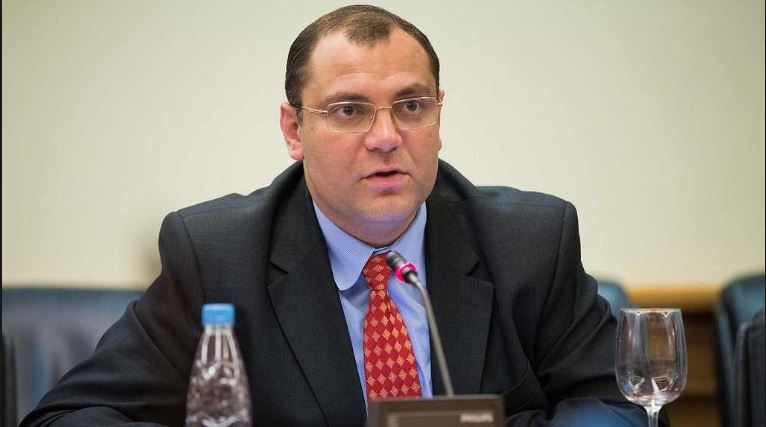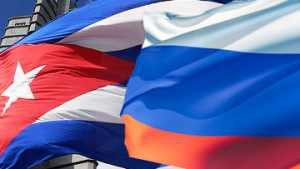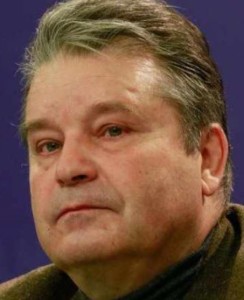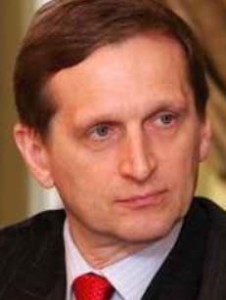
Some Russian policy experts are wary of U.S. intentions in Cuba
Although the speaker of Russia’s lower house voiced confidence that Russo-Cuban relations would not be affected by the restart of diplomatic relations between Cuba and the United States, and the Russian Foreign Ministry did not immediately issue an official note on that development, several Russian experts on foreign relations reacted cautiously on Thursday (July 2.)
Close cooperation with the United States could result in a change of regime for Cuba, warned a senior researcher at the Institute of International Security Problems in Moscow.
 Interviewed by the RIA-Novosti agency, Aleksei Valerievich Fenenko (shown in photo at top), a member of the Russian International Affairs Council, said that, from now on, “everything will depend on the policy of the Cuban authorities.”
Interviewed by the RIA-Novosti agency, Aleksei Valerievich Fenenko (shown in photo at top), a member of the Russian International Affairs Council, said that, from now on, “everything will depend on the policy of the Cuban authorities.”
“If they exercise some rigidity and caution, regime change can be avoided,” he said. “But if they assume that the Americans have started a century of friendship, then, after a while, the United States will surely organize and carry out a change of government.”
TRUST, BUT VERIFY
In effect, Fenenko’s advice was in line with the Russian saying “Trust but verify” that President Reagan quoted in the 1980s when dealing with the Soviet Union. Havana can be friendly toward Washington, Fenenko suggested, but it should make sure that it is not hoodwinked by its neighbor to the north.
One cannot speak about a “tangible breakthrough” between Havana and Washington, Fenenko said. Their new relationship comes from the Americans’ realization that “they are losing their home — Latin America.”
“So, Obama needs to demonstrate at least some visible success to show that his efforts in the Latin American region were not in vain. A hero, Obama won’t become — but at least he will be reported as such.”
Indeed, at the start of his speech Wednesday, Obama said that the normalization of relations with Cuba would serve to “begin a new chapter with our neighbors in the Americas.” Later, he said that “leaders across the Americas have expressed support for our change in policy.”
NO ‘ECONOMIC BOOM’
American dollars “will not flow like a river to Cuba,” said Fenenko. “No investment boom will occur until the Americans can make the regime change. Remember what Cuba was before 1959: sugar cane, tobacco and prostitution. These areas — maybe — will receive an investment boom.”
Russia “would lose very little” if it loses Cuba to the U.S., the expert believes.
“We left Latin America in 1987 or 1988. We haven’t been an active player since then. Of course, Cuba will continue to be our partner for the foreseeable future, if the Americans don’t arrange for a regime change — something that cannot be ruled out.

“But you can’t say that Cuba plays a key role in our architecture of security and in our structure of international relations.”
A ‘COLOR REVOLUTION’ IN THE MAKING?
Boris Aleksandrovich Shmelev, head of the department of Foreign Policy and International Relations at the Russian Diplomatic Academy, renders a similar opinion.
The restoration of U.S.-Cuba relations “is a reflection of the real situation,” he told Economics Today. “Obama had long promised to normalize relations with Cuba and he fulfilled that promise. The sanctions and economic embargo did not yield results and the regime of the Castro brothers was not deposed. Therefore, such a policy today is outdated.”
“The event opens a new page in relations between the two countries, but for the moment it is unclear how that page will be filled with content.”
According to Shmelev, Cuba is going through a very difficult economic situation “so we can assume that the United States is considering the possibility of organizing a ‘color revolution’ on the island in order to bring to power forces that are orientated toward [sympathetic to] the United States” — an apparent allusion to dissidents inside government.
On Wednesday, Obama spoke of “some very serious differences” between the U.S. and Cuba and stressed “America’s enduring support for universal values, like freedom of speech and assembly, and the ability to access information.
But an official Cuban government statement demanded “that [U.S.] programs aimed at promoting internal subversion and destabilization be eliminated.”
BEWARE OF MALCONTENTS
“That ‘color revolution’ may not happen tomorrow or the day after tomorrow, but the soil will be prepared,” Shmelev said. “I am talking about people who are inside the system. In Cuba, there are a lot of disgruntled people, hence the emigration to the United States, which is caused by the unflattering socio-economic circumstances on the island.
“But so far it is not clear when — or under what circumstances — the conditions will arise for a ‘color revolution’ that will shake the political regime.”
Russia’s role in Cuban affairs today is negligible, Shmelev said.
“After the collapse of the Soviet Union, we began to demand the repayment of debts, decided that Cuba was a burden on Russia’s neck, behaved very foolishly and now we’re paying the price for it, as we try to restore relations.
“However, neither the exchange of visits between [President Vladimir] Putin and Raúl Castro nor our program of cooperation and assistance to Cuba can solve the economic problems of the island — and this is exactly the key to the stability of the current political regime.”

The lack of visible young political leaders in Cuba is “particularly acute,” Shmelev said, “and it is unclear who will replace the veterans. That’s a fact that will determine the future of Cuba, [will determine] to whom Cuba will turn, and how that will affect the future of Russo-Cuban relations.”
DUMA SPEAKER SEES NO PROBLEM
No statement was forthcoming on Thursday from Russian Foreign Minister Sergei Lavrov, but Sergei Yevgenevich Naryshkin, Speaker of the Russian Duma, said that the resumption of U.S.-Cuba relations would not hinder Moscow-Havana relations.
“We are in a bilateral relationship through various integration groups, for the sake of cooperation,” said Naryshkin, who visited Cuba in early May. “We cooperate with others, not against others. The same applies to our interaction with Cuba.”
That sentiment was echoed by Emilio Lozada García, Cuba’s ambassador to Russia, who, at the presentation at the Duma on Thursday of a book about President Raúl Castro, expressed “our steadfast conviction that Russia can rely on Cuba as a fraternal country, which it always will be, regardless of circumstances, as it has been until now.”
*****
UPDATE: The Kremlin did not issue a formal statement Thursday on the reopening of embassies in Havana and Washington. When asked about it at a press briefing late in the day, President Vladimir Putin’s press secretary, Dmitri Sergeyevich Peskov, said only:
“The President has already commented and gave a very positive assessment of the process of normalization of bilateral relations between the United States and Cuba.”


